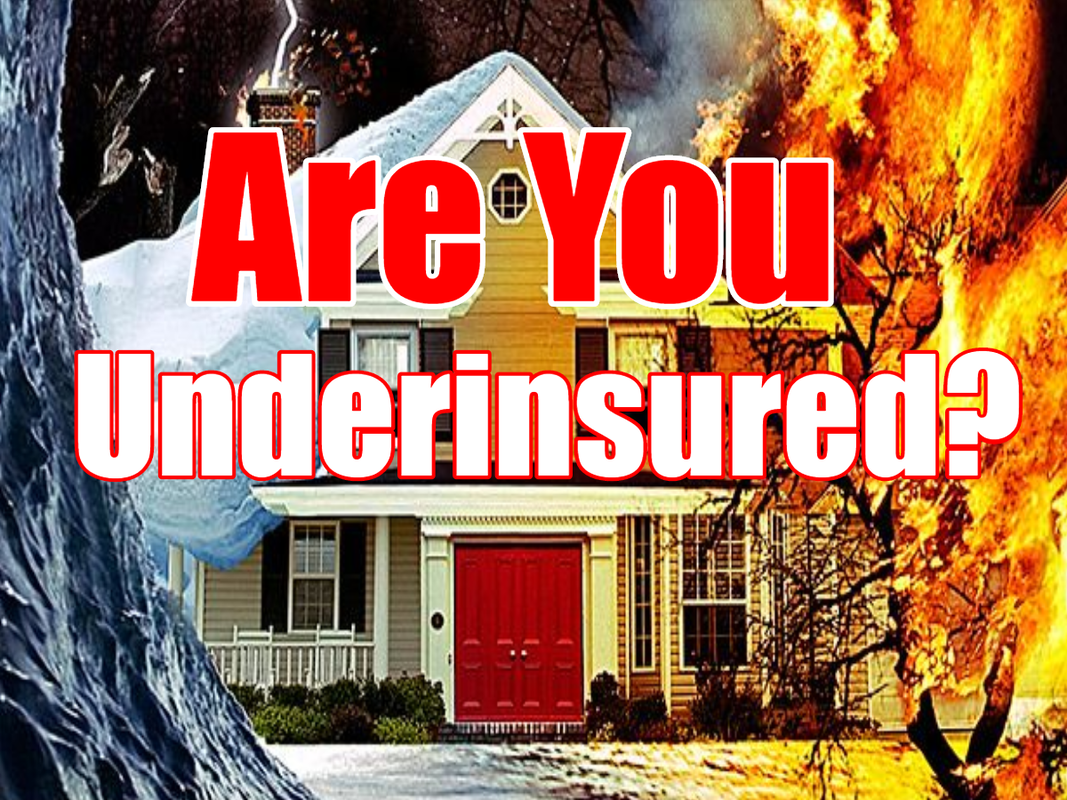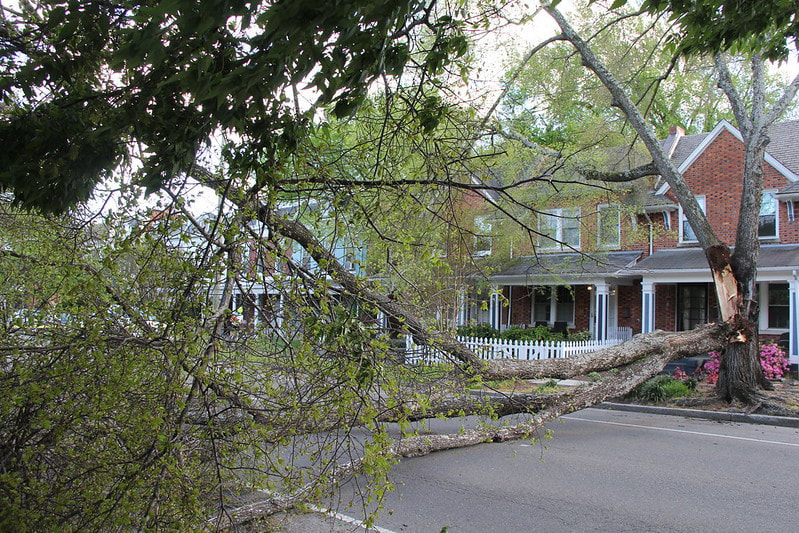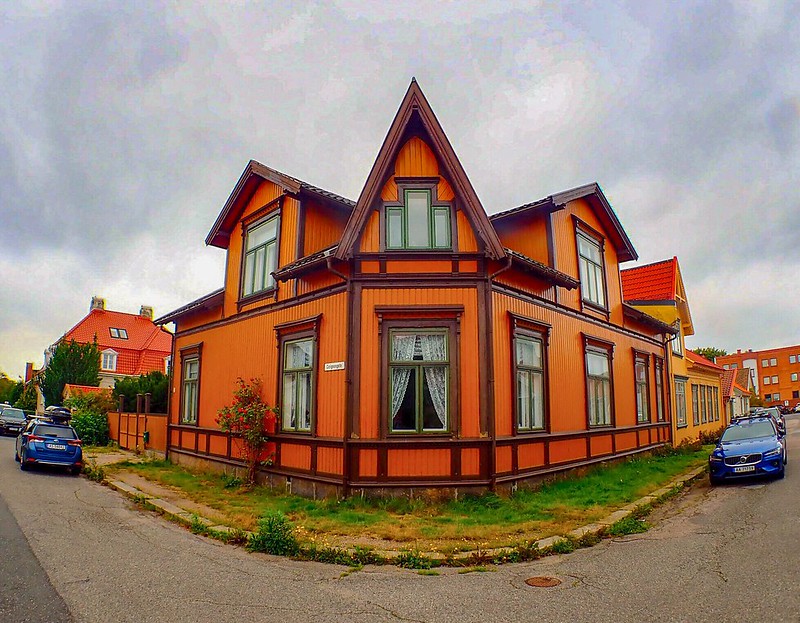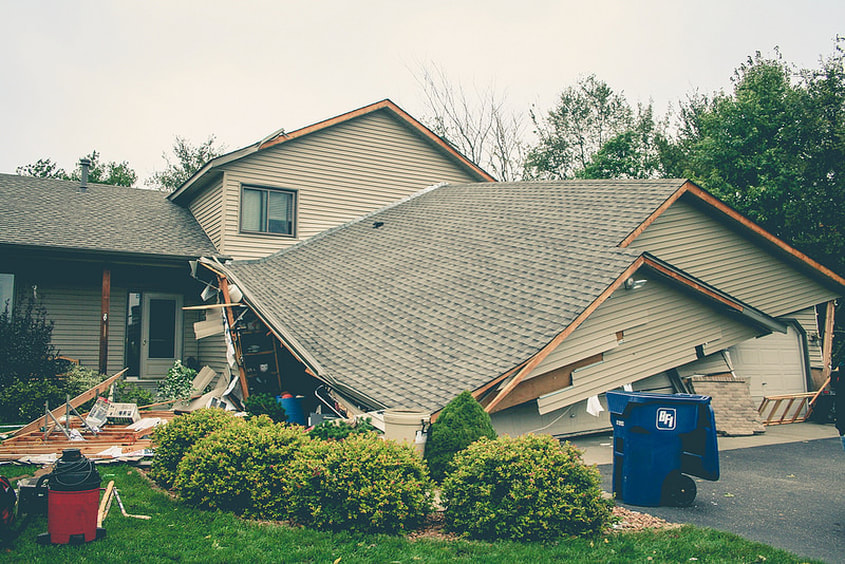Home Insurance to fit your budget and needs
Low Cost Home Insurance
|
Will Home Insurance Cover Damaged Patio Furniture After a Storm?
Storms can be intense, causing damage to the structure of your home. You may walk outside to find your patio table shattered into pieces or it may be in the neighbor’s backyard. When this type of damage occurs, contact your home insurance agent. Your agent will work closely with you to better understand what occurred. You may be able to file a claim for it. When does it apply? When Does Home Insurance Cover? Home insurance does not provide coverage for normal wear and tear on these items. If your patio table suffers a crack as a result of age, that will not have protection. It also does not apply if someone in your home causes the damage. This might include a child hitting it, for example. Rather, it applies in unexpected events including storms. It should provide financial protection for your patio furniture if it suffers damage due to lightning, fire or wind. If large hail hit the structure of your patio table shattering the glass, your coverage applies here, too. What About Your Deductible? Before you can obtain compensation for the losses, you must consider the deductible. Home insurance policies nearly always have one. This is the amount you are responsible for paying before the insurance company kicks in to pay the rest. The key here is to know what your deductible is. Then, consider the value of your patio furniture. If the value isn’t significantly below the deductible, there is no benefit in filing a claim. You will not receive funds for it. How Much Is Your Patio Furniture Worth? Whether you have a wicker patio set or an elegant set of Adirondack chairs, your home insurance policy usually pays out based on the value of the items before the storm occurred. This takes into consideration depreciation since you purchased them. If your policy offers replacement cost coverage, on the other hand, they may pay enough for you to purchase a new piece of furniture similar to the one you have now. When an event like this occurs, take pictures of what happened. Then, contact our insurance agency. We will walk you through the process of determining if you have coverage, what your deductible is, and how much you could receive for the loss. Storm damage is a typical type of coverage for most policies. Your home, your sanctuary, your biggest asset - it deserves the best possible protection. Home insurance may not be the most exciting topic, but it is one of the most important. With our help, you can find an insurance policy that is tailored to fit your unique lifestyle and needs.
We understand that every home is different, and everyone faces different risks. That's why we offer a range of options to make sure you get the coverage you need. From fire, personal property, property damage, and additional living expenses to jewelry, fine arts, collectibles, and more, we've got you covered. Imagine if your home caught on fire or suffered from water damage. Without adequate insurance, you could be left with a devastating financial burden. That's why it's essential to have comprehensive coverage that protects your biggest investment. Don't settle for bare minimum coverage - let us work with you to create a policy that's just right for you and your family. At the end of the day, your home is more than just a house; it's where memories are made, and life happens. It deserves to be protected with insurance that fits your lifestyle. Contact us today to discuss your options and give your home the protection it deserves. This is a house. It's like a lot of houses but with one big difference. It’s your house.
It’s where you hang your hat, open your mail, host cookouts but most important, it’s the place where you have everything and everyone that means the most. Protecting what matters most is what insurance is about and, if you're a homeowner, you know how your house works but what about your insurance? Do you know how it works? Do you know how to get the type of coverage that best fits your needs and budget? The what and how of insuring your home Homeowners’ policies cover three basic areas Structure, Belongings and Liability Structure is your house, its roof, walls, systems, a garage or other freestanding building on your property. This is covered against damage due to disaster such as fire, hail, wind damage, falling objects, burst pipes and other events. Things to be aware of Some types of water damage are covered You will need a separate policy for flooding and earthquakes and some things are never covered like damage from termites and other pests Belongings: your stuff is covered against loss due to an insured event or theft you're also covered off-site for loss of property wherever you are. The things to be aware of Create a home inventory to make it easier to keep track of your stuff and what it’s worth also you may need separate coverage for high-value objects. Liability covers harm to others that happen in your house like falls and other accidents. There are things that can increase your liability risks like trampolines, pools or an aggressive pet. You are also covered for additional living expenses. This covers the costs associated with living away from your home if it is damaged by an insured disaster and you can't live in it. How much coverage do you need when purchasing coverage? Remember this simple rule: insure to rebuild in the event of a total loss and have enough coverage to replace your belongings. Two things to be aware of House prices rise and fall but the cost of building materials in labor is always going up. So now that you know how insurance works for you, take the next step and contact our agency to discuss the coverage that best fits your needs Life is about the unexpected That's why there’s insurance to cover you against unexpected loss Test your Insurance IQ then stop by our office for a no-obligation review of all your insurance needs.
Home Insurance Considerations for Raising Grandchildren
Take the Quiz at https://insureuonline.org/quiz_raisinggrandchildren.htm and see how much you know about insurance considerations for raising grandchildren. A special challenge facing these grandparents is that state and local governments, communities, and schools may not formally recognize their role in raising their grandchildren. While acquiring legal custody and guardianship of a grandchild may be financially and emotionally burdensome, grandparents should be aware that many benefits, including healthcare, emergency care, financial assistance, and social security benefits, require proof of a legal relationship before they will help. Proof typically includes court guardianship papers or adoption papers. To help grandparents raising grandchildren better understand their insurance needs, our agency offers tips and considerations regarding auto, home, health, and life insurance. Home Insurance Considerations for Raising Grandchildren
Does Your Homeowner’s Policy Cover Your Home Business?
It’s likely that you depend on your homeowner or residential insurance policy to handle losses connected to your hobby or activities. A homeowner (HO) policy usually includes a definition of “business.” A given policy may use a definition so broad that nearly any activity qualifies as a business. In such instances, a hobbyist or enthusiast should consider whether business insurance is necessary. Let’s say you love photography, and you take pictures at weddings and other events to finance this passion. While you consider this to be a hobby, your insurer may define your activities as a business. If your camera equipment is stolen or damaged, there may be as little as $250 protection under your HO policy. HO coverage for business property differs depending on whether it is located at or away from your residence. Imagine the photography situation again. This time, you’re at a wedding job and have just set-up a perfect shot of the bridal party. As you are snapping a few shots, a large boom stand with hot lighting equipment tips over, injuring the maid of honor and the flower girl. A homeowner policy may exclude coverage if the injured women sue you since the injury is part of a business activity. There are numerous types of sales and service jobs. These include cosmetics, clothing, kitchen supplies, home decorator items, computer repair, web site design, photography, music lessons, auto repair and many contractors. Each job involves some type of business property that is excluded or severely limited under the homeowner policy. Therefore, each situation may need to be covered by business insurance. Although independent consultants are in business, too often they think their HO policy will provide coverage because they don't have special equipment or leave their home office to run their business. Office furnishings such as laptops, iPads, desks, chairs, and file cabinets are subject to HO policy limitations. Without adjustments to the homeowner policy there may be little or no coverage for property used in a business. The legal form of the business may create a need for business insurance. If a limited liability company, corporation or partnership is formed, the related activity is a business and needs business coverage. Also, most HO policies will not provide coverage for employees or for any professional liability. What can you do? First, determine if your activities qualify as a business. Then talk to one of our insurance professionals to determine what coverage is provided by the policies you currently have and what options are available to fill-in any gaps in protection. |
House Hunting Checklist
Before house hunting Set yourself up to be a financially desirable buyer. 1. Check your credit rating A good credit history makes it easier to get a mortgage at a competitive interest rate, and may also qualify you for a good credit discount on your insurance. Obtain a copy of one or all of your credit reports. Make sure they are accurate and report any mistakes immediately. If your credit is not as good as it could be, take steps now to improve it. 2. Protect yourself with a renter’s insurance policy If you are currently renting a house or apartment, protect yourself financially with a renter’s insurance policy. In the event of a disaster, renters’ insurance can help protect the down payment you’re building to buy your new home, as well as provide a useful insurance history to your prospective homeowner’s insurer when you go to buy your first home. While house hunting As you search for your new home, remember that the physical characteristics of the house—its size, location, construction and overall condition—can affect the cost, choice and availability of home insurance. In some cases, desirable features—like ornate plasterwork or proximity to the coastline—can make insuring a home costlier or more difficult. Some factors to consider when shopping for a home are: 3. Quality and location of the fire department Houses that are located near highly rated, permanently staffed fire departments usually cost less to insure. This also holds true for homes that have a hydrant nearby. 4. Proximity to the coastline Houses located on or near the coast will generally cost more to insure than those further inland. They will also likely require a separate hurricane or windstorm deductible. In some coastal communities, private homeowner’s insurance coverage may not be readily available. Instead, you may need to purchase insurance through a state-run insurance program. 5. Age of the home A stately, older home can be quite beautiful but ornate features like plaster walls, ceiling molding and wooden floors may be costly to replace and can raise the cost of insurance. And plumbing and electrical systems can become unsafe with age and lack of maintenance. If you are considering buying an older home find out how much it will cost to update these features and factor that into the cost of ownership. 6. Condition of the roof A new roof matters to insurers and keeps you and your family safer. Make sure to check the roof's condition. Depending on the type of roof and whether or not it's made with fire and/or hail resistant materials, you may even qualify for an insurance discount. 7. Quality of construction Find out whether the house has been updated to comply with current building codes. Homes well built by careful craftsmen and those constructed to meet modern engineering-based building codes are likely to better withstand natural disasters. 8. Risk of flooding Damage from flooding is NOT covered by standard home insurance policies. If you are buying a home in an area at risk from flooding, you will need to purchase separate flood insurance, which is available from the federal government’s National Flood Insurance Program (NFIP) and from a few specialty insurers. 9. History of earthquakes While earthquakes are most frequently associated with California, they occur in the majority of states and are not covered under standard home insurance policies. Earthquake insurance is available from private insurers as an endorsement to a homeowner’s policy, and in California from the California Earthquake Authority. 10. Swimming pool or other special features If the house has a swimming pool, hot tub or other special feature, you will likely need more liability insurance. You may also want to consider purchasing an umbrella liability policy to provide added protection in the event someone gets injured on your property and decides to sue you. Before you place a bid on the home Take precautions and understand the house's history, current condition, potential trouble spots—and costs. 11. Check the loss history report Ask the current homeowner to obtain a copy of the loss history report on the home. Homeowners can obtain either a Comprehensive Loss Underwriting Exchange (C.L.U.E.) report, which is available from LexisNexis, or an A-PLUSTM property report from ISO®. These reports provide a record of the type of loss on the home and can provide extremely valuable information. For instance, if there was a claim for water damage on the home, it is important to find out the source of the damage (such as a burst pipe) and whether it has been properly repaired. On the other hand, a claim for wind or hail that resulted in a new roof makes the home stronger and is very attractive from an insurance perspective. 12. Get the house inspected You’ll need to have the house inspected by a credentialed home inspector in order to get your mortgage approved. Accompany the inspector to make sure he or she is thorough and makes sure to:
13. Estimate maintenance costs Routine maintenance is your responsibility as a homeowner so be sure to factor these costs into the overall price of owning the home. Losses caused by failing to properly care for your home are not covered by standard homeowner’s insurance policies. 14. Call our agency Don’t wait until the last minute to think about homeowner’s insurance and don’t be shy about asking for estimates on more than one house. Ask if the house will qualify and get an estimate of the premium. The sooner you speak with one of our insurance professionals, the smoother the process will be. If you're uncomfortable with the cost of insuring a particular house, look for one that better fits your financial situation. RECOVERING FROM A TORNADO
Protecting yourself and your family
Your Construction Project with Builder's Risk Insurance: A Must-Have for Home Builders
As a home builder, you invest significant time, effort, and resources into your construction projects. However, unforeseen events beyond your control, such as fire, theft, or natural disasters, can put your hard work and financial stability at risk. To safeguard your project and mitigate potential losses, it is essential to understand the importance of Builder's Risk Insurance. This comprehensive article will delve into the intricacies of Builder's Risk Insurance, discuss who needs it, and spotlight its benefits for home builders. What is Builder's Risk Insurance? Builder's Risk Insurance, also known as Course of Construction Insurance, is a specialized insurance policy designed to protect the interests of home builders during the construction phase. It provides coverage for damage or loss to the insured property, including the building and materials, against a wide range of perils, excluding certain specified exclusions. Who needs Builder's Risk Insurance? While Builder's Risk Insurance is not legally mandated, it is highly recommended and often required by lenders, contractors, and project owners. Home builders undertaking construction projects of various sizes, such as residential developments, remodeling projects, or custom-built homes, can greatly benefit from this coverage. Additionally, it is crucial for builders involved in commercial construction projects, including retail spaces, office buildings, and multi-unit residential complexes. The Importance of Builder's Risk Insurance for Home Builders: Protection against property damage: Builder's Risk Insurance covers property damage resulting from perils like fire, windstorms, vandalism, theft, and more. This coverage ensures that your investment is protected, as repairing or replacing damaged property can be a significant financial burden without insurance. Coverage for construction materials: Builder's Risk Insurance extends coverage to construction materials stored on-site or in transit. This protects against theft, damage from inclement weather, accidents during transportation, or vandalism. This coverage is particularly beneficial in high-risk areas or when expensive materials are used. Profit preservation: In the event of a covered loss, Builder's Risk Insurance helps home builders preserve their expected profits. It covers additional expenses, such as temporary structures, debris removal, and professional fees required to complete the project on time or repair the damaged property. This enables builders to fulfill their contractual obligations without incurring significant financial setbacks. Enhanced reputation and client confidence: By having Builder's Risk Insurance, home builders demonstrate their commitment to protecting their clients' investments and showcasing a professional approach to risk management. This instills confidence in clients, lenders, and stakeholders, leading to enhanced reputation and increased business opportunities. Conclusion: Builder's Risk Insurance is an indispensable tool for home builders undertaking construction projects of any scale. Its all-encompassing coverage protects against various perils, safeguards your investment, and ensures the smooth completion of your projects. By securing Builder's Risk Insurance, home builders can focus on their core competencies, minimize potential losses, and build a solid foundation for long-term success. Remember, while this article provides valuable insights, it is essential to consult with one of our insurance professionals to determine the specific policy details that suit your needs. |







